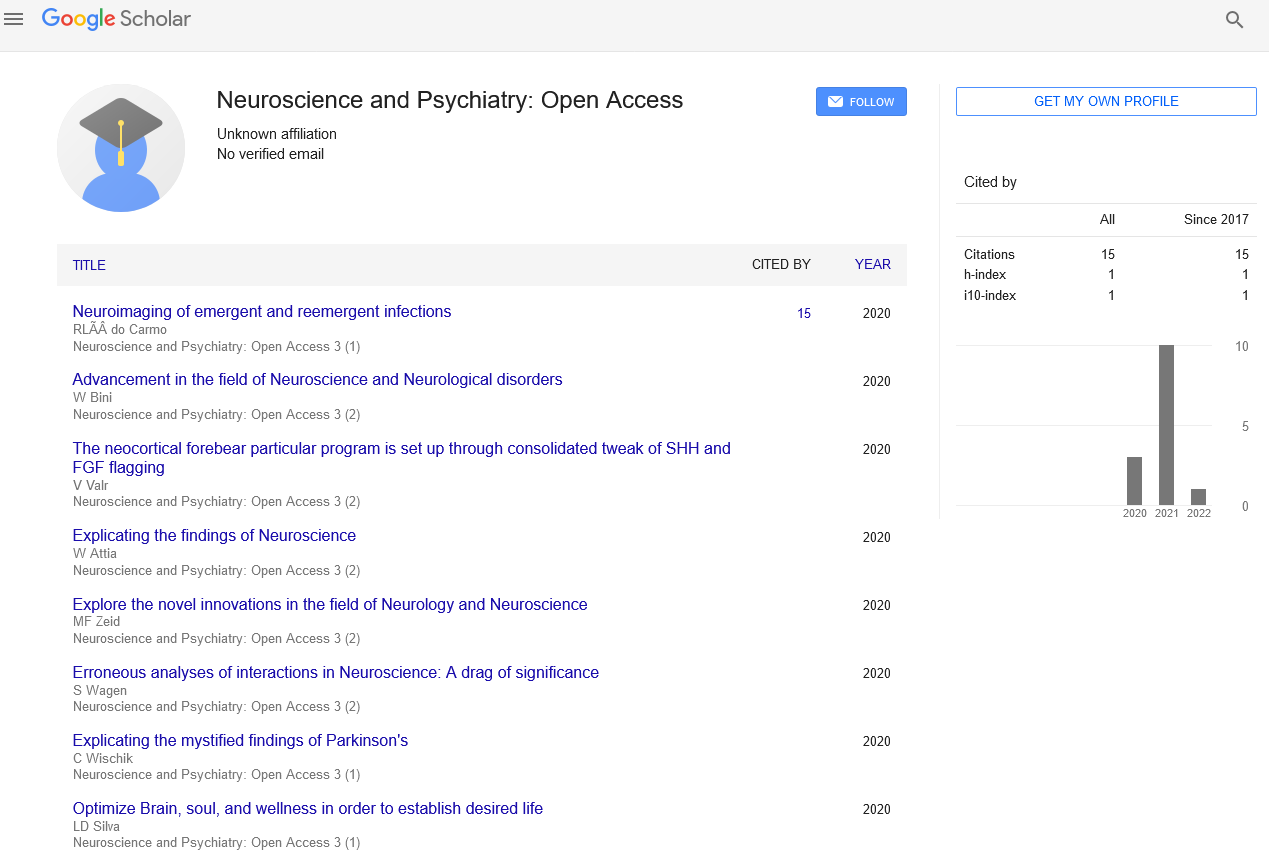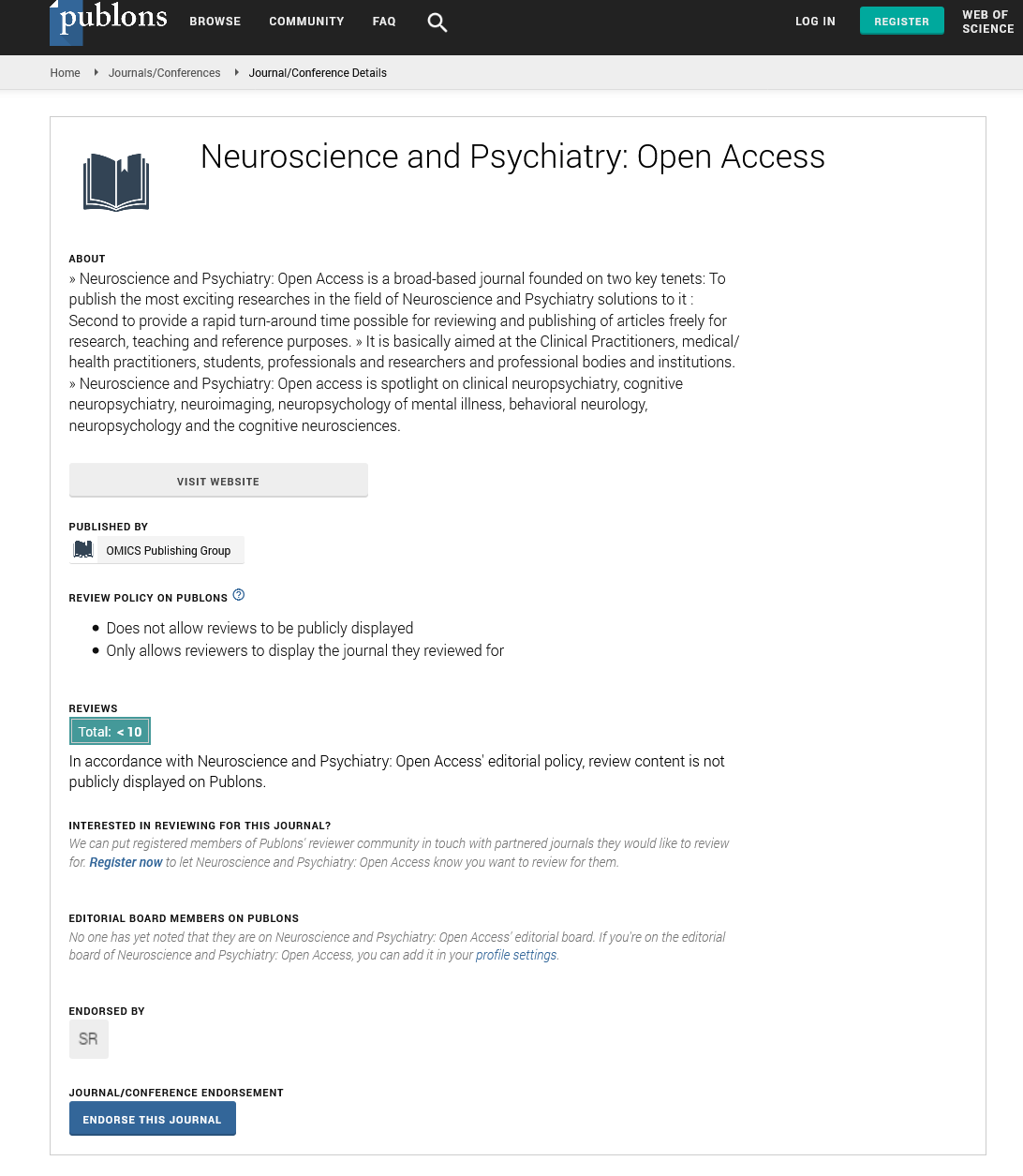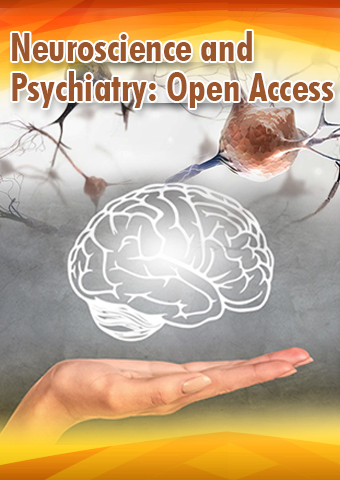Review Article - Neuroscience and Psychiatry: Open Access (2022) Volume 5, Issue 4
Changes in feeling handling and social comprehension with hear-able versus visual neuroscience-informed mental preparation in people with schizophrenia
Justin Twain*
Memorial University of Newfoundland, Canada
*Corresponding Author:
Justin TwainMemorial University of Newfoundland, Canada
E-mail: Twain_justin@gmail.com
Received: 04-Jul-2022, Manuscript No. NPOA-22-73402; Editor assigned: 11-Jul-2022, Pre-QC No. NPOA- 22-73402 (PQ); Reviewed: 25-July- 2022, QC No. NPOA-22-73402; Revised: 30-July-2022, Manuscript No. NPOA-22-73402 (R); Published: 08-August-2022, DOI: 10.37532/ npoa.2022.5(4).70-71
Abstract
Neuroscience-informed mental preparation has been utilized to remediate mental shortages in schizophrenia, however their impact on feeling handling and social comprehension deficiencies, which might include hear-able and visual hindrances, remain generally obscure. In this review, we looked at the viability of hear-able versus visual neuroscience-informed mental preparation on feeling handling and social perception in people with schizophrenia. How we might interpret the idea of personal hardships in schizophrenia has been enormously upgraded by translational exploration throughout the course of recent many years. By consolidating strategies and hypotheses from emotional science, analysts have had the option to find that individuals with schizophrenia show not many outward shows of feeling however report encountering unmistakable inclinations within the sight of genuinely reminiscent upgrades or occasions.
Keywords
Schizophrenia • Emotion • Anticipation • Memory
Introduction
Schizophrenia is a complex mental problem that dissemblingly affects the existence of impacted people and their capacity to explore in the social climate. The subsequent unfortunate social working is related with debilitations in both inclination handling and social cognizance. These debilitations have thusly been connected with modifications in the handling of both hear-able and visual tangible data that happens in schizophrenia. To be sure, it has been shown that patients with schizophrenia experience issues in disentangling profound hear-able signals and present irregularities in hear-able handling, which have been connected with an expansion in close to home withdrawal and absence of suddenness [1]. Truth be told, as of late, it has been found that the basal ganglia and the cerebellum assume a vital part in the handling of hear-able inclination yet little is had some significant awareness of how these cerebrum locales might be useless in people with schizophrenia. Neuroscience-informed modernized mental preparation is characterized as a designated, customized preparing that spotlights on enacting brain adaptability in unambiguous region of the brain framework based on integrative examination. This approach commonly first includes lower-level mental preparation and as preparing advances the intricacy of mental cycles is continuously expanded. Different hear-able and visual activities of neuroscience-informed discernment, social comprehension and feeling handling preparing have been created over the course of the past 10 years to attempt to remediate shortfalls in patients with schizophrenia [2]. Most of these examinations utilized hear-able mental preparation Schizophrenia is a problem that influences numerous spaces. A portion of its more unmistakable side effects include challenges in thinking and discernment. While these side effects might go back and forth with episodes, a portion of the more durable side effects include troubles in feeling [3]. Specifically the alleged negative side effects of level influence and cancelation. All include feeling. These side effects are frequently impervious to drug and are related with unfortunate generally working, highlighting the significance of figuring out feeling in schizophrenia [4]. Which were in a couple of cases, supplemented with social discernment and feeling handling preparing? One exploration concentrate on that consolidated hear-able and visual mental preparation, enhanced with social perception preparing, showed upgrades in prosody distinguishing proof and prize handling in patients with schizophrenia [5].
Discussion
This study displayed interestingly the impact of hear-able versus visual neuroscience-informed mental preparation on feeling handling and social comprehension in people with schizophrenia[6]. Both the heart-able and the visual mental phases of preparation were useful at diminishing RT in the acknowledgment of looks and further developing execution in the hypothesis of psyche test [7,8]. The hear-able mental preparation additionally altogether further developed verbal feeling valence awareness and close to home control[9,10].
Acknowledgement
We might want to thank patients for participating in this review. The mental preparation programming utilized in this review and all specialized help were given to us for nothing.
References
- Nava E, Turati C. Subliminal affective priming changes the ‘feeling’ towards neutral objects in infancy. Soc Neurosci. 15, 447-457 (2020).
- Gurdak K. Housing, citizenship, and communities for people with serious mental illness. J Evid Inf Soc Work. 15, 95-97 (2018).
- Marci CD. Social Neuroscience: People Thinking About Thinking People. J Nerv Ment 195, 133-144 (2007).
- Ford K. A social construction of remission for people with a diagnosis of schizophrenia. Ment. Health Soc Incl. 22, 94-107 (2018).
- Holttum S. Research watch: trauma-informed mental health care and avoiding exclusion of people with a psychosis diagnosis from trauma therapies. Ment Health Soc Incl. 25, 109-116 (2021).
- Jones M, Coffey M. Voice hearing: A secondary analysis of talk by people who hear voices. Int J Ment Health Nurs. 21, 50-59 (2012).
- Goldberg D. The future pattern of psychiatric provision in England. Eur Arch Psychiatry Clin. 249, 123-127 (1999).
- Devries MW. Neuroscience and the future of psychiatry. Curr Opin Psychiatry. 12, 638-639 (1999).
- Thibaut F. Controversies in psychiatry. Dialogues Clin Neuro. 20, 152-152 (2018).
- Schnyder U. Future perspectives in psychotherapy. Eur Arch Psychiatry Clin. 259, 123-128 (2009).
Indexed at, Google Scholar, Crossref
Indexed at, Google Scholar, Crossref
Indexed at, Google Scholar, Crossref
Indexed at, Google Scholar, Crossref
Indexed at, Google Scholar, Crossref
Indexed at, Google Scholar, Crossref
Indexed at, Google Scholar, Crossref
Indexed at, Google Scholar, Crossref


